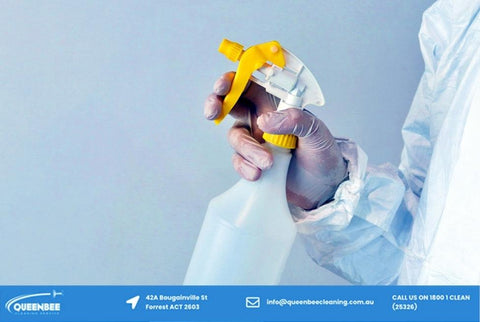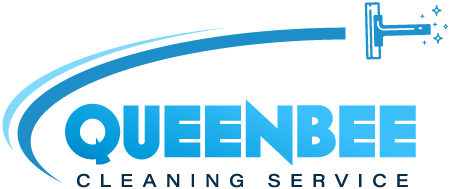9 Office Cleaning Products You Should Never Use
Commercial cleaners who use the proper office cleaning materials create a cleaner and safer workplace. This is no longer the case when cleaners use the wrong products. As a result, your workplace will be less tidy than it should be. In some cases, it may even be dirtier than it was before.
It doesn’t even begin to address the risks to property and people. For example, using the wrong product on certain surfaces could result in long-term property damage. Worse, if commercial cleaners use hazardous cleaning materials, people’s health may be jeopardized.
QueenBee will show you some dangerous cleaning products and why you should avoid using them in this article.
TOXIC OFFICE CLEANING PRODUCTS COME IN MANY FORMULAS
The concentration of toxic chemicals in common office cleaners ranges from acute (immediate) risks like skin or respiratory problems, chemical burns, or watery eyes to chronic (long term) risks like cancer, reproductive issues, ADHD, a weakened immune system, and more.
The majority of dangerous compounds discovered in household cleaners fall into one of three categories:
Carcinogens are substances that either cause or promote cancer.
Endocrine disruptors are substances that mimic human hormones and cause erroneous signals to be sent throughout the body, resulting in infertility, precocious puberty, miscarriage, menstruation problems, ADHD, and even cancer.
Neurotoxins are substances that cause symptoms such as headaches and memory loss by interfering with brain function.

9 CLEANING ITEMS THAT YOUR CLEANERS SHOULD NEVER USE:
- Ethoxylates of alkyphonl (APEs)
Cleaning products containing Alkyphonl ethoxylates (APEs) and their derivatives are found in a wide variety of household cleaners. They may, however, result in serious health problems and illnesses. According to various reports and studies, APEs can mimic hormonal estrogen, which promotes breast cancer.
- Sodium hypochlorite
Mixing ammonia-based cleaners with bleach or other chlorine-based products and dishwashing detergent produces harmful vapors that can harm your health and the environment.
- Diamine tetraacetic acid ethelyne
Using cleaning products containing Ethelyne diamine tetraacetic acid and its derivatives may result in serious health problems such as lung or asthma symptoms.
- Corrosive Chemical Substances
Many cleaning products contain corrosive and potentially hazardous chemicals such as ammonia, lye, and chlorine bleach. Because they emit harmful and poisonous fumes when used, these chemicals irritate the throat, lungs, nose, and eyes.
- Dusters made of feathers
Because flock dusters can only clean a portion of your property, your cleaning staff should avoid using them. Furthermore, they do not effectively remove dust and grime from surfaces when compared to a vacuum cleaner or other cleaning equipment.
- Products containing diethanolamine and triethanolamine
Diethanolamine (DEA) and triethanolamine (TEA) are two ingredients that your cleaning staff should avoid as well (TEA). This class of substances is neurotoxic, which means they have the potential to harm your nervous system and brain.
- A non-microfiber cloth
Never provide non-microfiber cloths to your cleaning staff if you want them to clean and tidy the surfaces of your office or your items. Their use is unsanitary, and they do not clean as thoroughly as microfiber does.
- 2-Butoxyethanol
This is a key ingredient in window and house cleaning solutions, as well as several cosmetics. However, according to various publications, breathing the gases emitted by 2-butoxyethanol on a regular basis may cause throat problems, lung edema, kidney and liver damage, and other problems.
As a result, office owners with cramped quarters or small offices should avoid items containing the aforementioned chemical.
- Sodium Hydroxide
Cleaning chemicals based on sodium hydroxide, which are commonly used to clean ovens and drains, are extremely tart in their natural state. It may cause severe burns that last for days if it comes into contact with your skin or eyes, as well as throat irritation and discomfort.
CONCLUSION
If chemical-based cleaners that are harsh and hazardous to the environment are used on a regular basis, they can cause severe illness and health problems. To keep your office clean and sanitary, make sure you only use environmentally friendly and non-toxic cleaning products.
QueenBee Cleaning Pty LTD
Address:
- 42A Bougainville St Forrest ACT 2603
- 3/5 Daphne close Kingswood NSW 2747
Hotline: 1800 1 CLEAN (25326)
Email: info@queenbeecleaning.com.au
